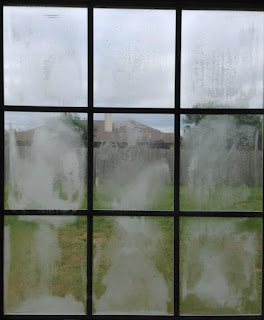The Best Way to Clear Moisture From Windows | Ottawa Window Medics
The windows are one of the most important parts of your home. They not only provide a view of the outside world but also help regulate the temperature in your home. But did you know that moisture on windows can actually cause problems with air quality? Moisture is one of the worst enemies in the winter. Not only does it make your windows dirty and hard to see out of, but it's also a factor in mold growth, which can lead to respiratory problems and serious allergies. If you're like most people, you probably don't think much about how to clean your windows. But if you want to keep them looking their best, it's important to know how to properly remove moisture from them. This article will teach you about some effective ways to remove excess moisture from your windows.
How to Clear Moisture from Windows?
If you live in a humid climate, you
know that moisture on your windows can be a real pain. Not only does it make
your windows look dirty, but it can also lead to mold and mildew growth.
There are a few different ways that
you can clear moisture from your windows. One way is to use a squeegee. Simply
wet the squeegee and run it over the surface of the window. This will remove
any water that is on the surface of the window.
Another way to remove moisture from
your windows is to use a lint-free cloth. Wet the cloth and then wring it out
so that it is just damp. Wipe the surface of the window with the cloth until
all of the moisture has been removed.
If you have deeper pockets of
moisture on your windows, you may need to use a window cleaner with a sponge or
brush attachment. Wet the sponge or brush and then scrub at the moist areas
until they are clean. Rinse away any cleaner that is left on the window with
clean water.
Once you have removed all of the
moisture from your windows, be sure to dry them off completely. You can do this
by using a clean, dry cloth or by opening up the window and letting some fresh
air in. Even after this process, if you think foggy glass window repair is needed, try taking an expert's help.
Frequent Mistakes When Clearing Moisture from Windows
1.
Not using the right tools: When it comes
to clearing moisture from windows, you need to use the right tools for the job.
This means using a squeegee or a soft cloth to avoid scratching the surface of
the window.
2.
Not drying the window immediately: If
you leave moisture on the window, it will eventually lead to streaks and water
spots. Make sure to dry the window as soon as possible after squeegeeing or
wiping it down.
3.
Not using a lint-free cloth: When drying
the window, you should use a lint-free cloth to avoid leaving behind any
residue that could attract dust and dirt.
4.
Applying too much pressure: When
squeegeeing or wiping down your window, be sure not to apply too much pressure.
This can cause scratches or other damage to the surface of the window.
5.
Not cleaning the edges: It's important
to clean the edges of the window where the frame meets the glass. This area can
easily accumulate dirt, dust, and other debris.
Conclusion
There you have it – four different ways to clear moisture from your windows. Whether you're dealing with condensation, fog, or even ice, one of these methods should help you get the job done quickly and easily. So don't wait any longer; put these tips to work and enjoy crystal-clear views all winter long. If your windows are particularly prone to moisture, you may want to consider investing in a dehumidifier. These devices can help to regulate the humidity level in your home, which can, in turn, help to reduce the amount of moisture that collects on your windows. Depending on the severity of the moisture problem, you can choose to hire foggy glass window repair in Ottawa to keep your windows clear all winter long.



Comments
Post a Comment